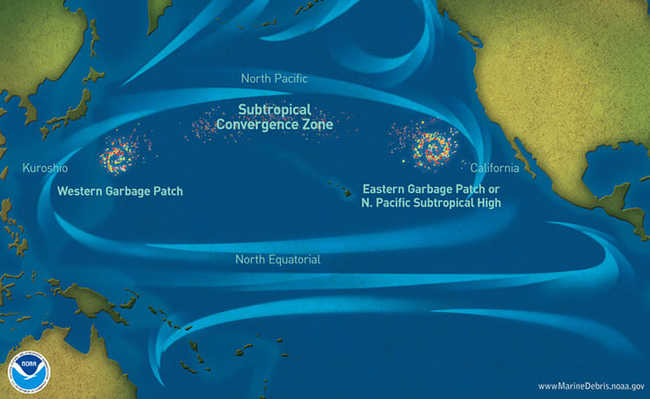COP24: countries set rules to implement Paris Agreement
After two weeks of negotiations, officials gathered in Poland for COP24 arrive at a set of guidelines to implement the Paris Agreement

Image: UNFCCC
After two weeks of negotiations, the nearly 200 people gathered in Katowice, Poland, for the UN Conference on Climate Change (COP 24) adopted on Saturday (15) a “robust” set of guidelines to implement the Paris Agreement, aiming to keep global warming well below 2°C compared to pre-industrial levels.
- Limiting global warming requires "unprecedented changes", says UN report
COP 24 President Michal Kurtyka was greeted with applause as he opened the conference's closing plenary, which had been postponed. He thanked the hundreds of delegates for their “patience”, noting that the last night had been a long one. General laughter came when the conference screens showed a delegate yawning; the meeting was scheduled to end on Friday (14).
“Katowice has once again shown the resilience of the Paris Agreement — our strong roadmap for climate action,” said Patricia Espinosa, head of the secretariat of the United Nations Framework Convention on Climate Change (UNFCCC) and speaking on behalf of the secretary. General of the UN, António Guterres.
Guterres, who has made the impacts of climate change a top priority of his tenure as UN secretary-general, has appeared in Katowice three times in the past two weeks to support the talks but, due to repeated delays, was forced to leave before the closing plenary, due to previously scheduled appointments.
The policy package adopted, called the “rule book” by some, is designed to encourage greater ambition for climate action and benefit people from all walks of life, especially the most vulnerable.
Trust and finance climate action
One of the key components of the “Katowice package” is a detailed transparency framework designed to build confidence among nations about what each is doing to tackle climate change.
It defines how countries will provide information on their national action plans, including the reduction of greenhouse gas emissions, as well as mitigation and adaptation measures.
Agreement has been reached on how to uniformly account for greenhouse gas emissions, and if the poorest countries feel that they cannot meet established standards, they can explain why and present a plan to increase their capacity in this regard.
On the thorny issue of financing developed countries to support climate action in developing countries, the document sets out a way to decide on new and more ambitious targets from 2025, based on the current commitment to mobilize $100 billion for year from 2020.
Another notable achievement of these negotiations is that nations have agreed on how to collectively assess the effectiveness of climate action in 2023, and how to monitor and report on progress in technology development and transfer.
“The guidelines that the delegations have been working on day and night are balanced and clearly reflect how responsibilities are distributed among the nations of the world,” Espinosa said in a press release. "They embody the fact that countries have different capacities and economic and social realities, while providing the basis for ever-growing ambition."
“Although some details need to be finalized and improved over time, the system is being put in place,” she added.
Points where there was no consensus
Ultimately, the talks stumbled on a key issue that will be back on the table at the next UN climate change conference, COP 25, scheduled to take place in Chile.
The subject is known in specialist circles as “Article 6”, which deals with the so-called “market mechanisms”, which allow countries to meet a part of their domestic mitigation targets.
This is done, for example, through “carbon markets” — or “carbon trading”, which allows countries to trade their emissions. The Paris Agreement recognizes the need for global rules on this matter to safeguard the integrity of all countries' efforts and ensure that every ton of emissions released into the atmosphere is accounted for.
“From the beginning of the COP, it was very clear that this was an area that still required a lot of work and that the details to operationalize this part of the Paris Agreement had not yet been sufficiently explored,” Espinosa explained, noting that most countries were willing to agree and include guidelines on market mechanisms, but that “unfortunately, in the end, the differences could not be bridged”.
Main achievements of COP 24
In addition to political negotiations between member states on the Paris guidelines, over the past two weeks, the COP 24 corridors buzzed with around 28,000 participants who shared ideas, participated in cultural events and built partnerships for cross-sector and collaborative activities.
Many encouraging announcements, especially about financial commitments for climate action, were made: Germany and Norway pledged to double their contributions to the Green Climate Fund, established to allow developing countries to act; the World Bank also announced that it would increase its commitment to climate action after 2021 to $200 billion; the Climate Adaptation Fund received a total of $129 million.
The private sector in general showed strong engagement. Among the highlights of this COP, two major industries — sports and fashion — joined the movement to align their business practices with the objectives of the Paris Agreement, through the launch of the Sport for Climate Action and the Fashion Industry Charter for the Climate Action.
Many other commitments were made, and concrete and inspiring actions were taken.
“From now on, my five priorities will be: ambition, ambition, ambition, ambition and ambition”, said Patricia Espinosa on behalf of the UN head, António Guterres, at the end of the plan. “Ambition in mitigation. Ambition to adapt. Ambition in finance. Ambition in technical cooperation and capacity building. Ambition in technological innovation”.
To achieve this, the UN Secretary General is convening a Climate Summit on September 23 at UN Headquarters in New York to engage governments at the highest levels.










